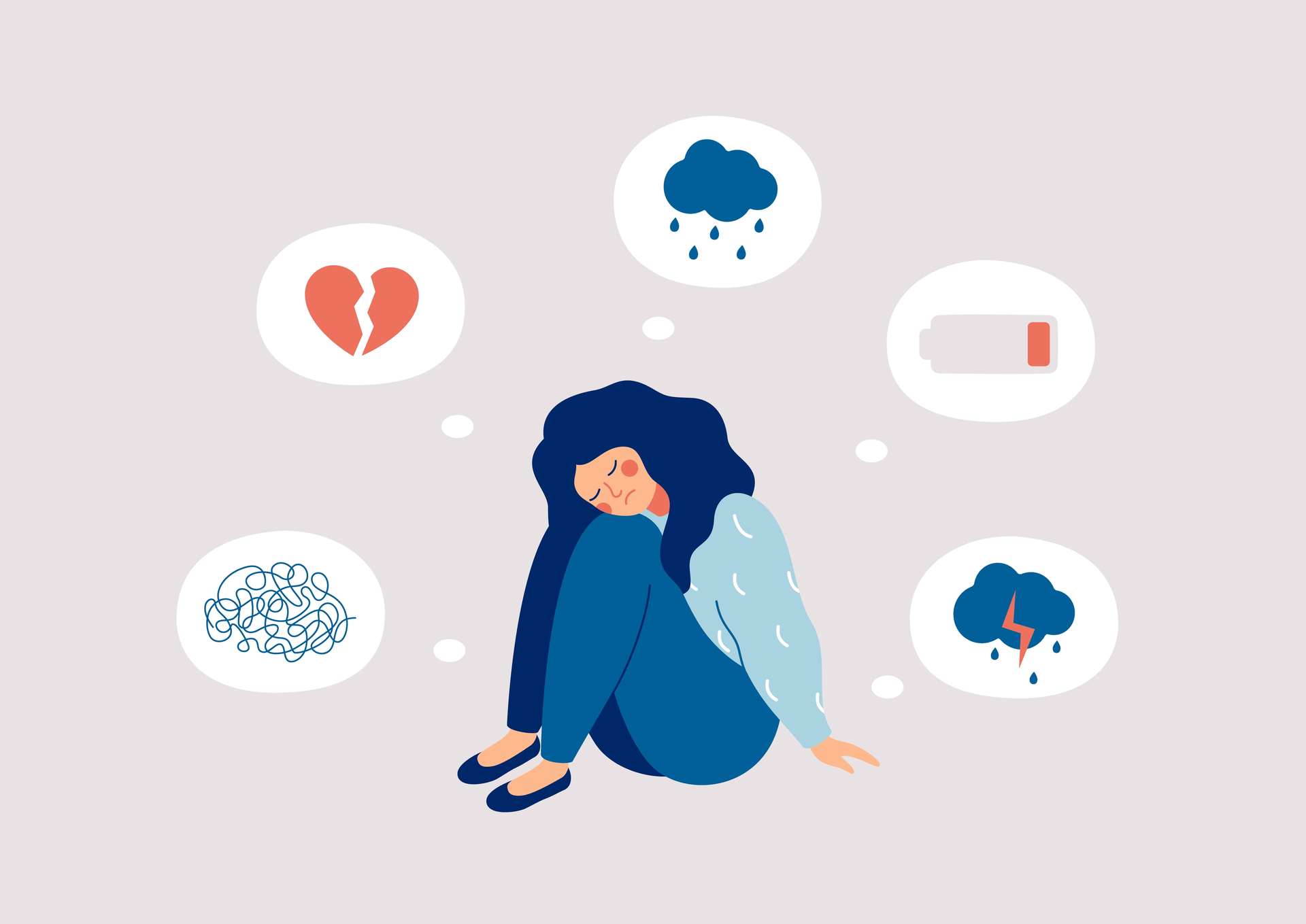
Everyone feels down from time to time, and sadness is a completely normal human emotion. Even extreme sadness can be normal when we encounter certain life evens such as the loss of a loved one of the end of an important relationship. At times like this, sadness is expected and is a coping mechanism. Sadness is an evolutionary process and was used to keep us safe when things were out of the ordinary. For example, if we injured ourselves we would have a low mood the following few days, to keep us safe and focus on our recovery. As low moods are common and normal, it can be difficult to know when we are suffering from depression. How do we know the difference between the two terms?
1. Depression is a mental illness
A low mood is not classed as a psychological illness. Depression is a mood disorder that causes you to feel constant sadness or a lack of interest in life. It results in biological changes in your brains ability to produce and absorb neurotransmitters and it can affect the physical structures in the brain.
2. Low mood usually passes quickly
A low mood tends to lift after a few days whereas a symptom of depression is a low mood lasting over two weeks. Depression can last weeks, months or even longer in some cases and the sufferer can have repeated episodes.
3. Low mood is normally contextual to life events
A low mood reflects a person’s emotional state, normally in relation to their life events. If a person is under pressure at work, had an argument with someone they care about or failed an exam, it is common that they may experience a period of a low mood. However, depression can occur for no reason at all. A lot of people suffering from depression feel guilty about their illness because their life circumstances are good.
4. Low mood can pass without any treatment
Depression is an illness so it generally requires some form of treatment to help alleviate the symptoms, whereas a low mood usually lifts, either when the cause is resolved or because we adapt to new circumstances. Depression can be treated with a variety of treatments. For some people, a combination of antidepressants and talking therapy is effective whilst others use self-help strategies such as exercise or meditation.
